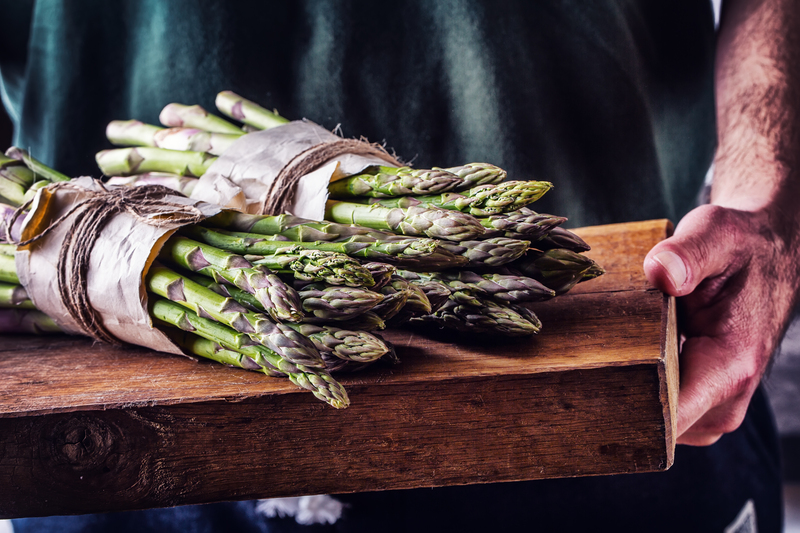From Waste to Wealth: Soil Enrichment with Organics
Posted on 17/09/2025
From Waste to Wealth: Soil Enrichment with Organics
Turning what was once considered rubbish into a valuable resource, soil enrichment with organic materials is a revolutionary approach to sustainable agriculture and gardening. This in-depth guide explores every facet of converting waste into wealth for bountiful, healthy, and resilient soil.
Introduction: The Power of Organic Soil Enrichment
Soil is much more than just dirt; it's a living ecosystem. Healthy soil teems with life, nourishes plants, and supports healthy food chains. Yet, modern agriculture and wasteful habits have degraded soils worldwide. Fortunately, transforming organic waste into soil enrichment resources is one of the most efficient ways to reverse this trend. Composting, mulching, and other biological soil amendment methods not only recapture nutrients but help build soil structure and fertility.
- Organic soil enrichment transforms kitchen scraps, yard waste, and agricultural residues into valuable soil amendments.
- Building soil fertility with organics reduces reliance on synthetic fertilizers and pesticides.
- Soil enriched with organics is more resilient to drought, erosion, and disease.

Understanding Organic Matter: The Foundation of Fertile Soils
Organic matter--decomposed plant and animal material--forms the backbone of fertile, productive soil. When you enrich soil with organics, you stimulate the activity of billions of beneficial microorganisms. These microscopic allies break down organic residues, release nutrients, and improve soil texture.
Types of Organic Materials for Soil Enrichment
- Compost: The gold standard of organic amendments, compost is the result of controlled decomposition of organic matter. Rich in nutrients and beneficial microbes, it is ideal for all types of soil.
- Manure: Animal manures, such as those from poultry, cows, or horses, add significant nitrogen and other nutrients when properly aged.
- Green Manures: These are cover crops, like clover or vetch, grown and then incorporated into the soil to add organic matter and nutrients.
- Mulches: Materials such as straw, wood chips, or leaves both protect the soil surface and enrich it as they break down.
- Biochar: Charred organic material that enhances soil's nutrient and water holding capacity.
Benefits of Adding Organics to Soil
- Improves soil structure and aeration.
- Enhances water retention capacity.
- Boosts the population of beneficial soil organisms.
- Increases nutrient content and bioavailability.
- Reduces soil erosion and compaction.
- Promotes robust and healthy plant growth.
The Transformation Path: How Waste Becomes Soil Wealth
The journey from waste to wealth in the context of enriching soil with organics involves turning everyday organic waste into a potent resource for plant growth. The key processes include:
1. Composting: Nature's Recycling Engine
Composting is the controlled aerobic decomposition of organic materials--kitchen scraps, leaves, lawn clippings, and more. Microorganisms rapidly break down this organic matter, resulting in a nutrient-rich, earthy material called humus.
- How to compost: Layer green (nitrogen-rich) and brown (carbon-rich) materials, maintain moisture, and regularly turn the pile for aeration.
- What to compost: Fruit and vegetable peels, coffee grounds, eggshells, yard waste, and shredded paper.
- What to avoid: Meat, dairy, diseased plants, and pet waste.
Finished compost can be used as a top dressing, soil amendment, or even brewed into compost tea for foliar feeding.
2. Vermicomposting: Harnessing Worm Power
Vermicomposting uses special composting worms (such as red wigglers) to break down organic waste. The result is worm castings--one of the most nutrient-dense and plant-friendly soil amendments available.
- Worm bins can be kept indoors or out, making this process accessible to almost anyone.
- Worm castings contain high levels of available nitrogen, phosphorus, and potassium.
3. Mulching: Nature's Blanket for the Soil
Applying a layer of organic mulch conserves moisture, moderates soil temperature, and eventually decomposes to enrich the earth. Both decorative and functional, mulching is an essential component of organic soil improvement.
- Use grass clippings, wood chips, bark, straw, or even shredded leaves.
- Layer mulch 2-4 inches thick around plants while keeping it away from stems for best results.
Soil Enrichment with Organics for Different Contexts
Home Gardens
- Small-scale composting and mulching turn kitchen and yard waste into free fertilizer.
- Enriched soil leads to healthier, tastier vegetables and ornamentals.
- Reduces garden waste by up to 50% or more.
Commercial Agriculture
- Large-scale composting operations turn crop residues and livestock manure into soil-building amendments.
- Organic soil enrichment reduces input costs and boosts crop resilience.
- Enhances soil health over time, increasing long-term profitability.
Urban Landscapes and Community Projects
- Community composting programs harness neighborhood organic waste for public green spaces.
- Green roof and urban garden projects benefit immensely from rich, living soils.
Environmental Impact: Waste Reduction & Sustainable Soil Health
Soil enrichment with organics is about more than just growing better plants--it represents a major environmental triumph.
- Diverts organic waste from landfills, where it would otherwise produce methane, a potent greenhouse gas.
- Increases carbon sequestration in soil as stable organic matter.
- Reduces water pollution by holding nutrients in the soil profile, preventing runoff.
- Protects biodiversity above and below ground.
Best Practices: Turning Your Waste Into Soil Wealth
To maximize the benefits of organic soil enrichment, follow these tips:
- Balance Carbon and Nitrogen: In composting, use a blend of "brown" (carbon-rich) and "green" (nitrogen-rich) materials.
- Keep It Moist, Not Wet: A damp sponge-like consistency helps decomposition without creating odors or anaerobic conditions.
- Aerate Regularly: Turning compost aids in even breakdown and prevents compaction.
- Test Your Soil: Periodically check soil pH and nutrient content; adjust organic additions as needed.
- Rotate Crops: Include cover cropping and rotation to prevent soil-borne diseases and deplete pests.
- Use Diverse Organics: Mix leaf mulch, manure, compost, green manures, and even kitchen waste for maximum benefit.
Challenges and Solutions in Soil Enrichment with Organics
Challenges:
- Composting can attract pests if not managed properly.
- Imbalance of nutrients may happen with single-source inputs (e.g., too much manure).
- Space limitations, especially in urban areas.
- Time requirement for full decomposition.
Solutions:
- Use enclosed bins to manage odors and pests.
- Mix a variety of organic materials to ensure balanced nutrient profiles.
- Try vermicomposting or bokashi for small spaces.
- Utilize municipal or community compost programs where available.
Global Case Studies: Turning Organic Waste into Immeasurable Value
India's Zero-Budget Natural Farming
Farmers use cow manure, crop residues, and locally available organics to rebuild soil fertility, dramatically reducing input costs and improving yields.
San Francisco's Mandatory Composting
Since implementing municipal composting, the city diverts thousands of tons of food and yard waste from landfill annually, returning it as rich compost to parks and vineyards.
Kenyan Urban Gardens
Small-scale composting in urban Kenya empowers women and youth, producing fertile soil for household and market gardening in limited space.
Frequently Asked Questions on Soil Enrichment with Organics
Is it safe to use kitchen scraps in my garden?
Yes, most plant-based kitchen waste is safe and excellent for composting or direct mulching; avoid meat, dairy, oily foods, and pet droppings.
How long does it take for organic matter to improve soil?
Visible benefits from compost can appear within a few months, but cumulative soil health grows over years of regular enrichment.
Can I use fresh manure?
It's best to compost or age manure before applying to prevent potential disease and burning of plants due to excess ammonia or pathogens.
Is organic soil enrichment cost-effective?
Absolutely. Over time, reduced fertilizer and water bills, healthier plants, and reduced waste disposal costs outweigh the small investment of effort.

Future Outlook: Toward Circular, Regenerative Agriculture
The movement from waste to wealth with organics is gaining momentum. As more people, businesses, and governments recognize the economic, ecological, and societal benefits, large-scale composting, urban garden projects, and even industrial biochar production are reshaping towns and countryside alike.
By elevating organic soil enrichment--from simple backyard composting to systemic agricultural reform--humanity has a powerful tool not just for food security, but for climate resilience and the restoration of natural cycles.
Conclusion: Soil Wealth is Community Wealth
Soil enrichment with organics turns yesterday's waste into tomorrow's wealth. Whether you're a backyard gardener, commercial farmer, or city dweller, every action to recycle organics nourishes our planet from the ground up. By adopting these practices, you are joining a movement towards a more sustainable, regenerative, and prosperous future.
Turn your waste into wealth - enrich your soil, and reap the rewards for generations to come!
Latest Posts
Elevate Your Garden with 5 Inexpensive Maintenance Tips
Step-by-Step Guide to a Child-Centric Garden
Ensuring a Lush and Secure Green Space for Your Pup

